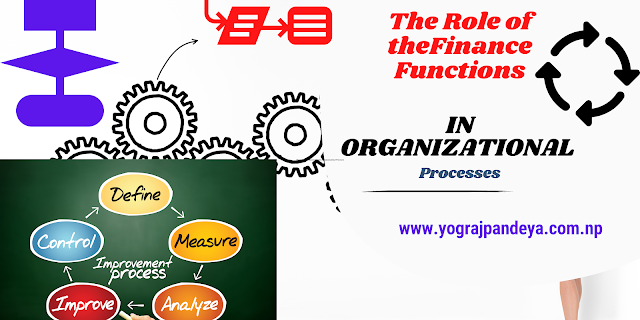The Role of the Finance Function in Organizational Processes
The Finance Function and
the Project Office
If modern businesses are to survive the current economic downturn, they must exercise cost reduction. Given that many top-tier organizations are presently experiencing poor growth and decreased activity, they must keep expenses as low as feasible. This can only happen if the finance department at these firms is diligent and keeps a close check on the expenditures that are incurred. Apart from that, corporations must improve the efficiency of their operations, which is another responsibility of the finance department in today's organizations.
Synergies between the various processes are required, and here is where the finance function may help. To the extent that one believes that the finance function, which is really a support role, is responsible for this on its own, it is worth noting that many modern businesses have specialized project office teams for each division that fulfill this duty.
To put it another way, whereas the finance function controls organizational operations on a macro level, project office teams do so on a micro-level. This is why finance, project planning, and cost control have become important since, after all, businesses exist to generate money, and finance is the lifeblood that decides whether they succeed or fail.
The Pension Fund Management and Tax Activities of the Finance Function
The financial function's next responsibilities include payroll, claims processing, and acting as a repository for pension and gratuity plans. In the United States, the finance department oversees the defined benefit and defined contribution plans, but in India, the finance function controls the EPF, or Employee Provident Funds. Of course, only major firms have specialized EPF trusts to handle these issues, and most smaller organizations' standard practice is to act as EPF facilitators with the local or regional PF (Provident Fund) commissioner.
The finance function's third responsibility is to manage taxes and their collection from employees at the source. While TDS, or Tax Deduction at Source, differs from country to country in the United States, it is necessary in India and much of the Western world for employers to deduct tax at source from employees in proportion to their income and benefits.
The finance department must also work with the tax authorities to arrange and distribute yearly tax statements, which serve as the foundation for the employee's tax returns. Because the tax regulations need highly rigorous standards for creating the tax statements, this is frequently a delicate and crucial operation.
Payroll, Claims Processing, and Automation
We've spoken about how to manage a pension fund and how to get a tax deduction. The finance function's other responsibility is to execute payroll and related benefits on schedule and by regulatory regulations.
The finance section is responsible for processing employee claims for medical and transportation benefits. Many firms employ ERP (Enterprise Resource Planning) software and financial workflow automation tools to automate this routine function, making the job and task of claims processing easier. However, it is important to note that the finance department must do due diligence on all claims presented to ensure that fake claims and suspicious activity are identified and halted. This is why many businesses employ chartered accountants and financial specialists in charge of the finance department, so that these issues may be handled properly and with integrity.
The most important feature is that the finance function must be led by people of great integrity, and the management's faith in them must not be abused. Finally, despite being a non-core operation in many businesses, the finance function has gained significance as a result of these factors.
- Financial Management - Meaning, Objectives, and Functions
- Human Resource Management System
- Market Information System (MIS) and Components
- Importance/Role of marketing
- E-marketing (internet marketing/ E-commerce)
- Concept of learning
- Introduction to Capital Structure Theories
- The Role of the Finance Function in Organizational Processes



